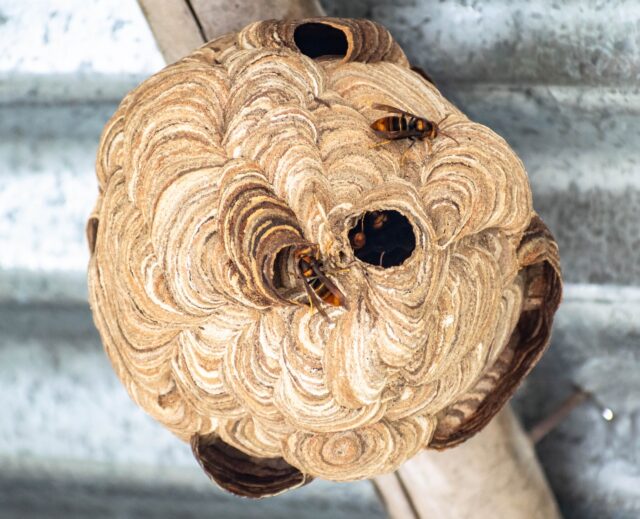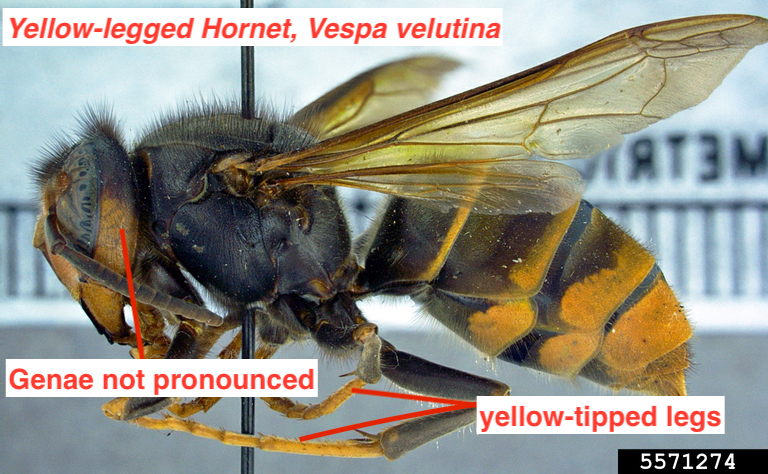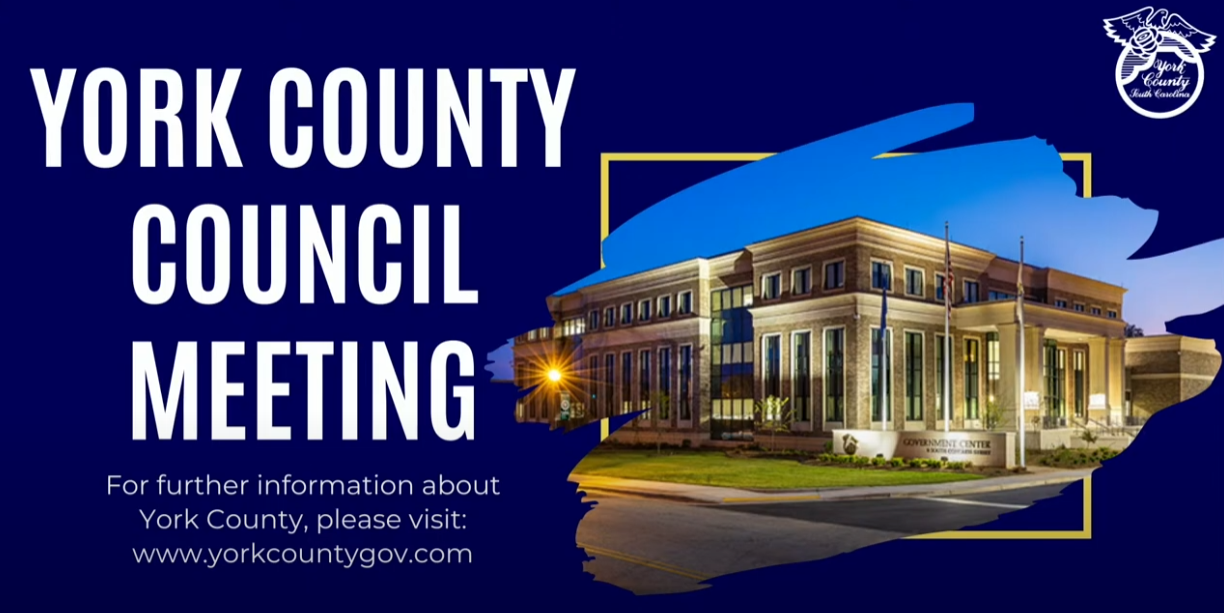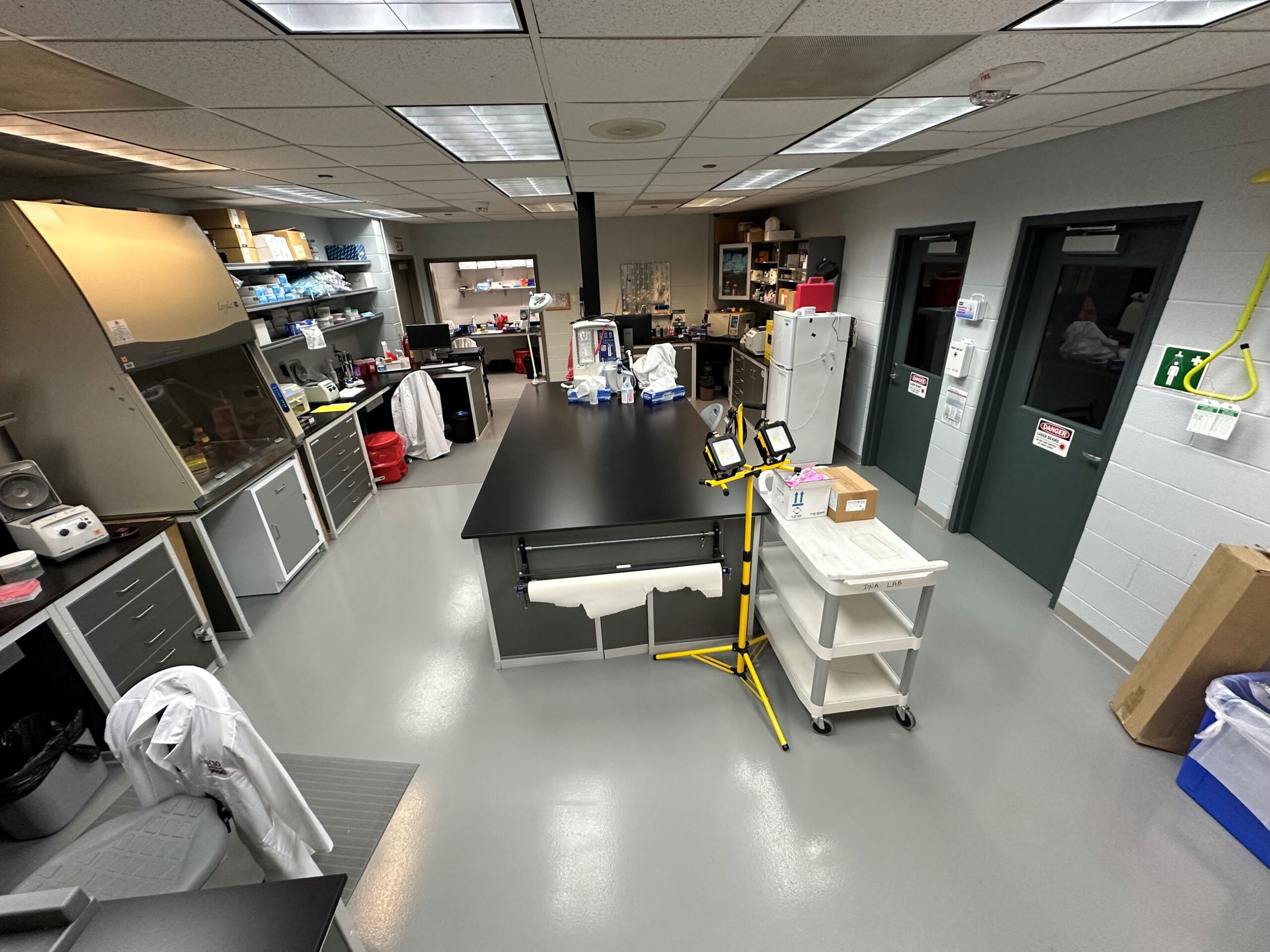Georgia (Tega Cay Sun) – For the first time, a yellow-legged hornet, recognized as an invasive species and related to the Murder Hornet, has been identified in Georgia.
The beekeeper in Savannah who first came across the hornet brought it to the attention of the Georgia Department of Agriculture (GDA), who verified the sighting.
Originating from Southeast Asia, the yellow-legged hornet has extended its reach to various regions, including Europe, Japan, and South Korea. Measuring around an inch long, this large hornet has distinctive yellow legs and a dark abdomen adorned with yellow bands. The hornets are known to construct above-ground, egg-shaped paper nests capable of accommodating up to 6,000 workers.

Photo. Yellow-legged hornet nest
While not regarded as a significant threat to human beings, the yellow-legged hornet can pose a danger to honeybees and other pollinators. With a propensity to prey on honeybees, they can demolish entire hives. Though capable of stinging humans, their venom is considered less potent compared to other hornet species.
The GDA is actively devising measures to trap and eradicate the yellow-legged hornets in Georgia and has urged the public to report any sightings. The GDA released a report to help the public report potential sittings.
Further insights about the yellow-legged hornet include:
– They remain active from spring through fall.
– They’re often spotted in wooded locations but may appear in urban settings as well.
– Encounters with a yellow-legged hornet should be handled with caution; do not approach, but instead contact the GDA or a local pest control service.
The Sun contacted the South Carolina Department of Agriculture about the yellow-legged hornet and was informed,
“In response to the confirmed presence of the yellow-legged hornet in Georgia, the South Carolina Department Agriculture in conjunction with the Invasive Species Program at Clemson has introduced a new webpage and survey tool on the DPI website at https://www.clemson.edu/public/regulatory/plant-industry/invasive/. Further questions should be directed to the Invasive Species Program at [email protected] and/or the Apiary Inspection Unit at [email protected]. All hornet callers can call phone numbers 864-594-0426 (Brad Cavin) and 864-646-2140.”










